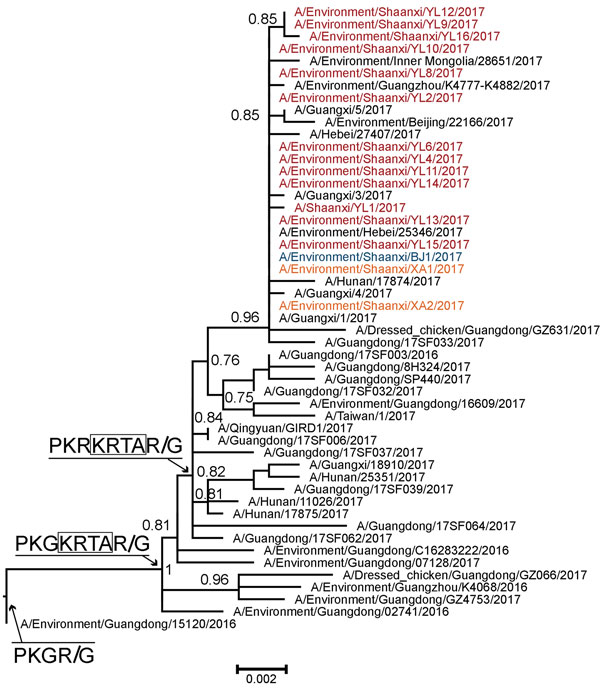Volume 24, Number 6—June 2018
Dispatch
Westward Spread of Highly Pathogenic Avian Influenza A(H7N9) Virus among Humans, China
Figure 1

Figure 1. Detail of highly pathogenic avian influenza A(H7N9) viruses isolated from human and environmental sources, Shaanxi Province, China, 2016–2017, showing Shimodaira-Hasegawa-like local bootstrap support values. Amino acid changes within the hemagglutinin cleavage site are indicated on basal branches. The low pathogenicity strain A/Environment/Guangdong/15120/2016 is used as an outgroup. Colors indicate sampling locations of the H7N9 viruses obtained in this study: red, Yulin; blue, Baoji; orange, Xi’an. An expanded version of this figure showing comparisons to reference viruses is available in Technical Appendix
1These authors contributed equally to this article.
Page created: May 17, 2018
Page updated: May 17, 2018
Page reviewed: May 17, 2018
The conclusions, findings, and opinions expressed by authors contributing to this journal do not necessarily reflect the official position of the U.S. Department of Health and Human Services, the Public Health Service, the Centers for Disease Control and Prevention, or the authors' affiliated institutions. Use of trade names is for identification only and does not imply endorsement by any of the groups named above.